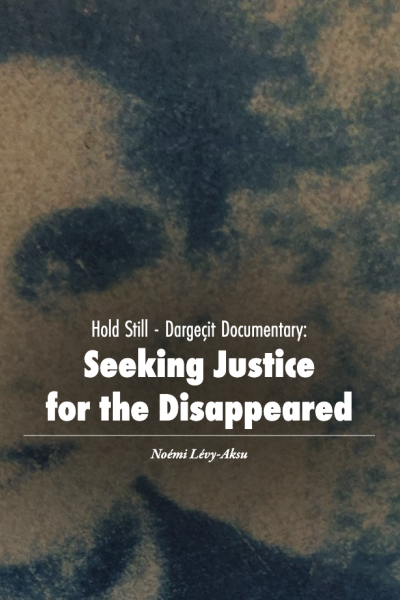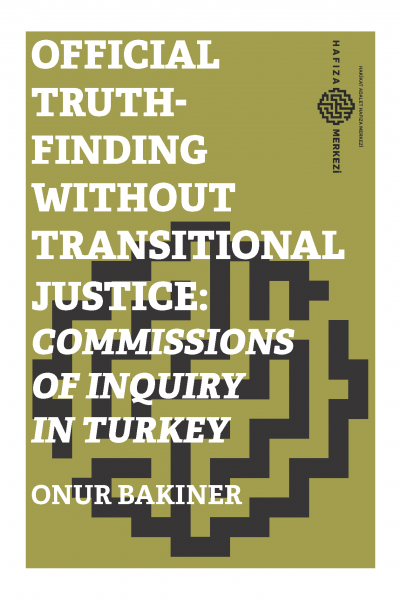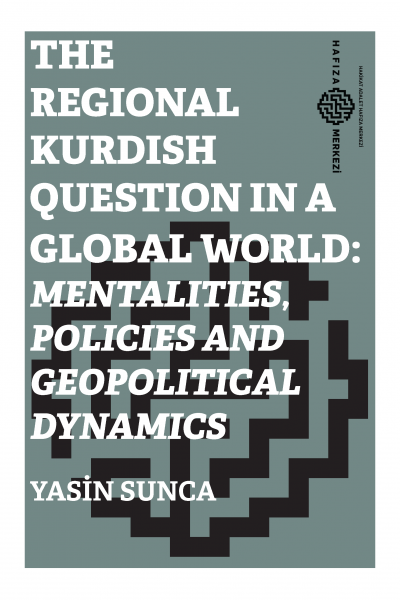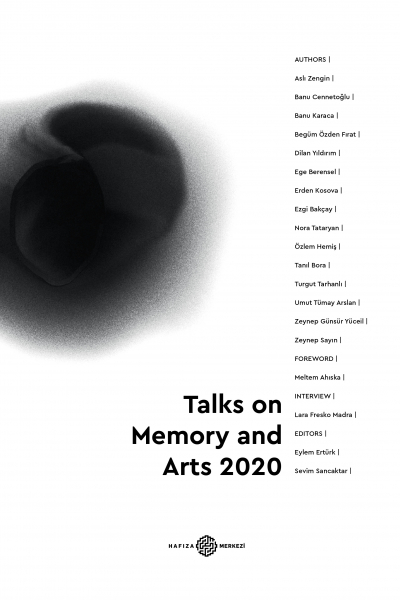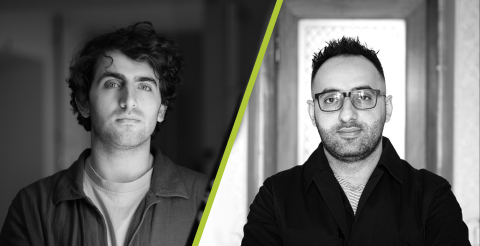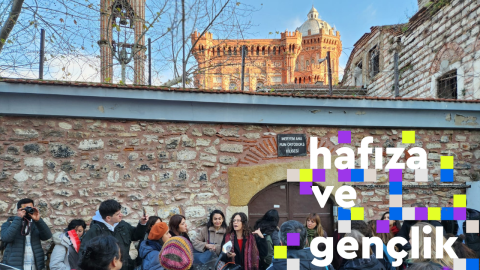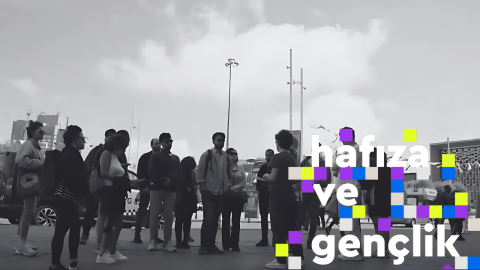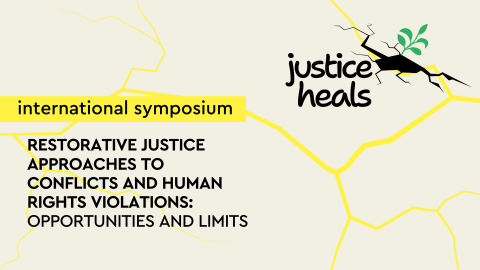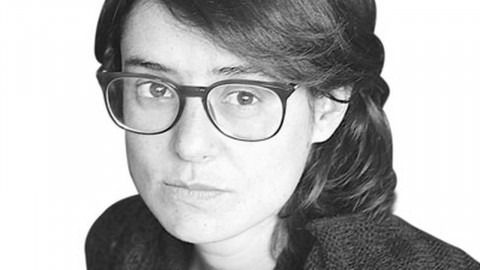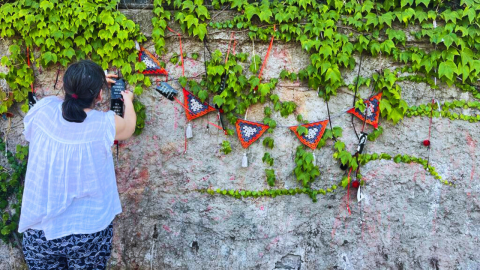Justice Heals: A Holistic Approach to the Right to Life of Children and Youth
Start Date: 02.01.2023
End Date: Ongoing
Website: https://adaletiyilestirir.org/

Objective
The project aims to develop a holistic approach that takes into account the sociological and legal contexts surrounding violations of the right to life against Kurdish children and youth from 2000 to 2015.
This holistic approach goes beyond merely documenting these violations of the right to life and outlining the related prosecution practices, as it seeks to make visible the desires, needs, expectations, and demands of those affected by these violations; to comprehend the trauma and devastation inflicted across different generations by unaccounted injustices protected by impunity; and to explore novel and creative ways of carrying out memorialization efforts. In other words, our goal is to address these violations through a restorative justice perspective and offer alternative solutions that will contribute to social reconciliation.
Rationale
Despite the positive shifts in Turkey during the early 2000s, such as the lifting of the State of Emergency and the advancement of legal reforms aimed at bolstering democracy, human rights, and the rule of law, “securitization” policies continued to prevail in the face of fundamental rights and freedoms. This securitization process was further solidified through a series of amendments, notably in the Anti-Terror Law in 2006 and the Law on the Duties and Legal Powers of the Police in 2007.
While there were positive developments in politics and the media during those years of relative liberalization, human rights violations in southeastern Turkey, as reported by civil society organizations including bar associations, did not garner the attention they warranted in the public sphere. As revealed in the applications to the European Court of Human Rights (ECtHR), from 2005 onwards, the deaths of children and youth resulting from the unlawful and disproportionate use of force by security forces, along with the accompanying policies of impunity, have been prevalent.
In cases involving gross human rights violations allegedly perpetrated by state officials, it is expected that legal proceedings carried out by the judicial authorities will uncover the truth regarding these violations and foster a sense of justice within society. Furthermore, it is deemed significant that the retributive approach inherent in criminal proceedings is supplemented by a restorative approach that acknowledges those affected as key stakeholders, aiming to heal the wounds inflicted on both society and individuals. When these aspects are overlooked, we observe that the processes often result in additional traumas for the victims, hindering the ability to reconcile with, comprehend, or compensate for the past.
Examining global experiences of transition from periods marked by gross rights violations to democracy (transitional justice), we once again observe that relying solely on criminal justice mechanisms falls short of fostering social justice, and the restorative justice perspective plays an important role in that regard. In the meantime, restorative justice approaches, shaped by political, social, and cultural contexts, can manifest in various practices across different countries.
Building upon these insights, the Justice Heals project aims to investigate violations of the right to life of Kurdish children and youth between 2000 and 2015, alongside the issue of impunity surrounding these violations, while exploring the potential contributions of the restorative justice perspective to peacebuilding.
Activities
Collection and analysis of legal and sociological data
Reports from civil society organizations and the applications to the ECtHR demonstrate that since the 2000s, deaths of children and youth resulting from the unlawful and disproportionate use of force by security forces, often accompanied by policies of impunity, have persisted. Despite this, there is a notable absence of systematically collected data and archives regarding investigations and lawsuits pertaining to these violations. Additionally, sociological data addressing the needs, expectations, and demands for justice of those affected by the violations are scarce, with only a few limited examples available.
As part of the project, we will conduct field visits and collaborate with bar associations and civil society organizations active in this field to gather both legal and sociological data on the deaths of children and youth allegedly involving security forces. Subsequently, we will establish a comprehensive database and produce two reports drawing from this data: one focusing on the sociological aspects and the other on the legal dimensions of the issue.
Support for the relatives of the victims, society, and civil society through a restorative justice perspective
Although restorative justice approaches are shaped by political, social, and cultural contexts, they are fundamentally centered on giving the victim an active role/position, acknowledging their experiences, and compensating damages through a comprehensive approach.
Building upon this foundational principle, we will organize three separate forums bringing together diverse groups affected by the violations, including victims' relatives, friends, and both direct and indirect witnesses of the events. The main objective of these forums will be to provide a platform for the families and diverse segments of society affected by the violations while identifying their expectations and needs.
As part of the project, a digital memorialization platform will be established, containing data on the deaths of children and youth allegedly involving security forces in southeastern Turkey during the 2000s. This platform will offer an open space for diverse stakeholders, who will be encouraged to contribute directly to the platform through articles, interviews, photographs, and videos.
In addition, an open call for project ideas will be organized for civil society organizations, platforms, initiatives, and activists working in this field to develop and support project ideas that propose innovative methods for combating impunity in violations of the right to life allegedly involving security forces and for opening restorative justice mechanisms to discussion. Three project ideas selected by the committee will receive financial support for their implementation.
Advocacy
The advocacy activities within the scope of the project will be grounded in the legal data collected through field visits and trial monitoring. Trial monitoring, a crucial tool of Hafıza Merkezi in combating impunity, is also essential for understanding the stance of the judiciary, which issues decisions in the name of the State. As part of this project, contemporary legal cases allegedly involving security forces will be identified and monitored according to the guidelines of the Organization for Security and Co-operation in Europe (OSCE). The monitoring reports will be shared with the public via the trial monitoring website Perpetrator Not-Unknown (https://www.failibelli.org/en/).
The data collected through field visits and trial monitoring activities will form the basis for international advocacy efforts. In collaboration with lawyers, bar associations, and organizations operating in the field of human rights, this data will be presented to relevant human rights mechanisms of both the United Nations and the European Council; and amicus curiae briefs will be prepared to support individual applications.
Additionally, an international symposium will be held in Istanbul in 2024 to foster the exchange of knowledge and experience, as well as collaboration among similar initiatives worldwide. The symposium will particularly focus on themes related to the restorative justice approach.
Communication strategy and awareness raising
One of the main objectives of the project is to change the public perception of widespread and systematic violations against children and youth in the Kurdish region and to raise awareness. To achieve this, we will first analyze the target group’s perception of the issue through qualitative research.Based on our findings, we will develop a communication strategy aimed at overcoming barriers and limitations in the target group’s perception and changing their views. We will disseminate our research findings, provide informative content on restorative justice principles and applications, and share personal stories about these violations, all centered around a unifying message that we will develop.

